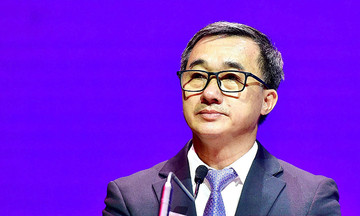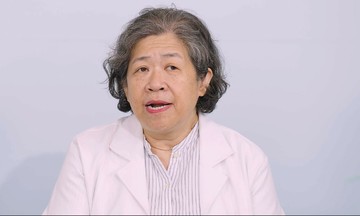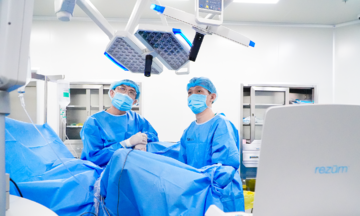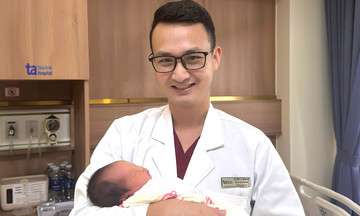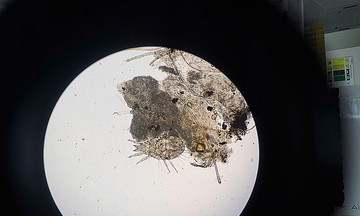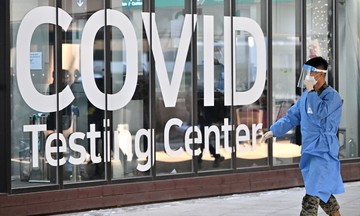At a press conference on September 10th highlighting organ transplant milestones at Viet Duc Hospital, Tran Nhu Quynh, the first person in Vietnam to receive a combined heart-lung transplant from a brain-dead donor, expressed her gratitude: "Thank you to the doctors who gave me a second chance at life, helping me overcome the brink of death and return to my family, my parents, and my son."
Her family members were also moved to tears. Her 13-year-old son, Dinh Tuan Thien, hugged his mother and spoke on behalf of the family, saying, "Thank you to the doctors for saving my mother's life and helping her become healthy again, so I can still have her."
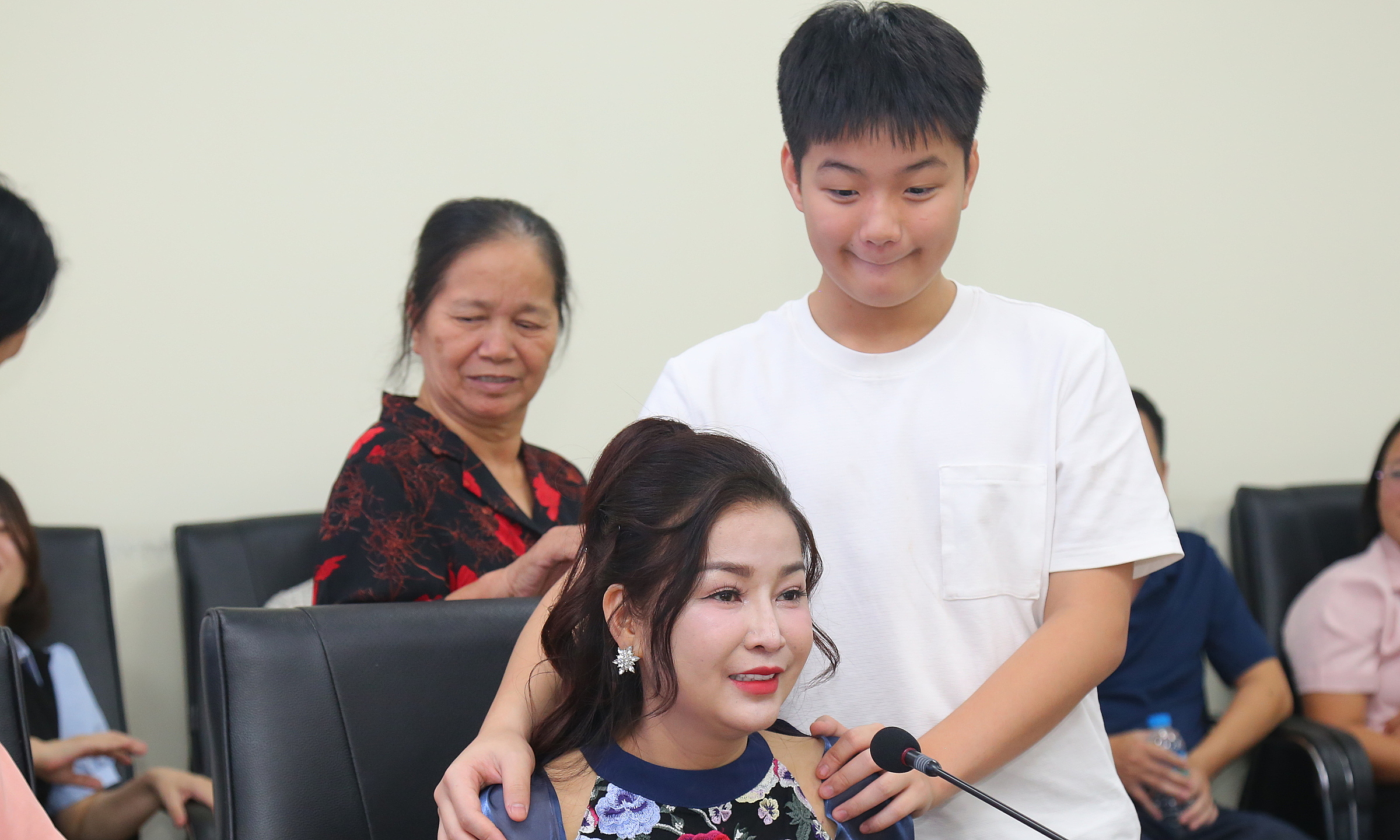 |
Quynh and her son thank the doctors. Photo: Thao My |
Quynh and her son thank the doctors. Photo: Thao My
This reunion was made possible by a historic surgery in 8/2025. Doctor Vu Van Thoi from the Department of Interventional Cardiology explained that before being admitted to Viet Duc Hospital, Quynh was on the verge of death. She suffered from Eisenmenger syndrome – irreversible right ventricular failure and severe tricuspid regurgitation on a background of atrial septal defect, a condition she had been treated for in 2011. However, due to inconsistent follow-up care and medication adherence, her condition worsened, with a high probability of death.
"The patient arrived at the hospital with both her heart and lungs failing, completely dependent on medication. At that point, medication was no longer effective, necessitating a replacement," Doctor Thoi explained, adding that the only solution was a combined heart-lung transplant. This is a complex medical procedure, performed only about 100 times annually worldwide, and had never been done in Vietnam before.
When the hospital received news of a matching organ donation from a 34-year-old brain-dead donor, doctors decided to perform the combined heart-lung transplant, even though there wasn't enough time to treat Quynh's malnutrition. Additionally, the donor's lungs were infected with Acinetor baummani bacteria and were larger than the recipient's chest cavity, presenting significant challenges.
The 7-hour transplant operation was supported by ECMO (extracorporeal membrane oxygenation). The surgical team reduced the size of both lungs for a proper fit and connected the two main bronchi instead of the trachea, as is traditional, to ensure better blood supply to the anastomosis.
The greatest post-operative challenge was balancing immunosuppressant medication. The patient needed a high dose to prevent rejection, but this increased the risk of infection from the multidrug-resistant bacteria in the donor lungs. Doctors used nearly 40 different medications, combined with hemofiltration to treat kidney failure and adjusted antibiotics to protect kidney function.
"This demonstrates how life can be extended thanks to the connection between donor and patient and the tireless efforts of medical professionals," said Doctor Duong Duc Hung, Director of Viet Duc Hospital.
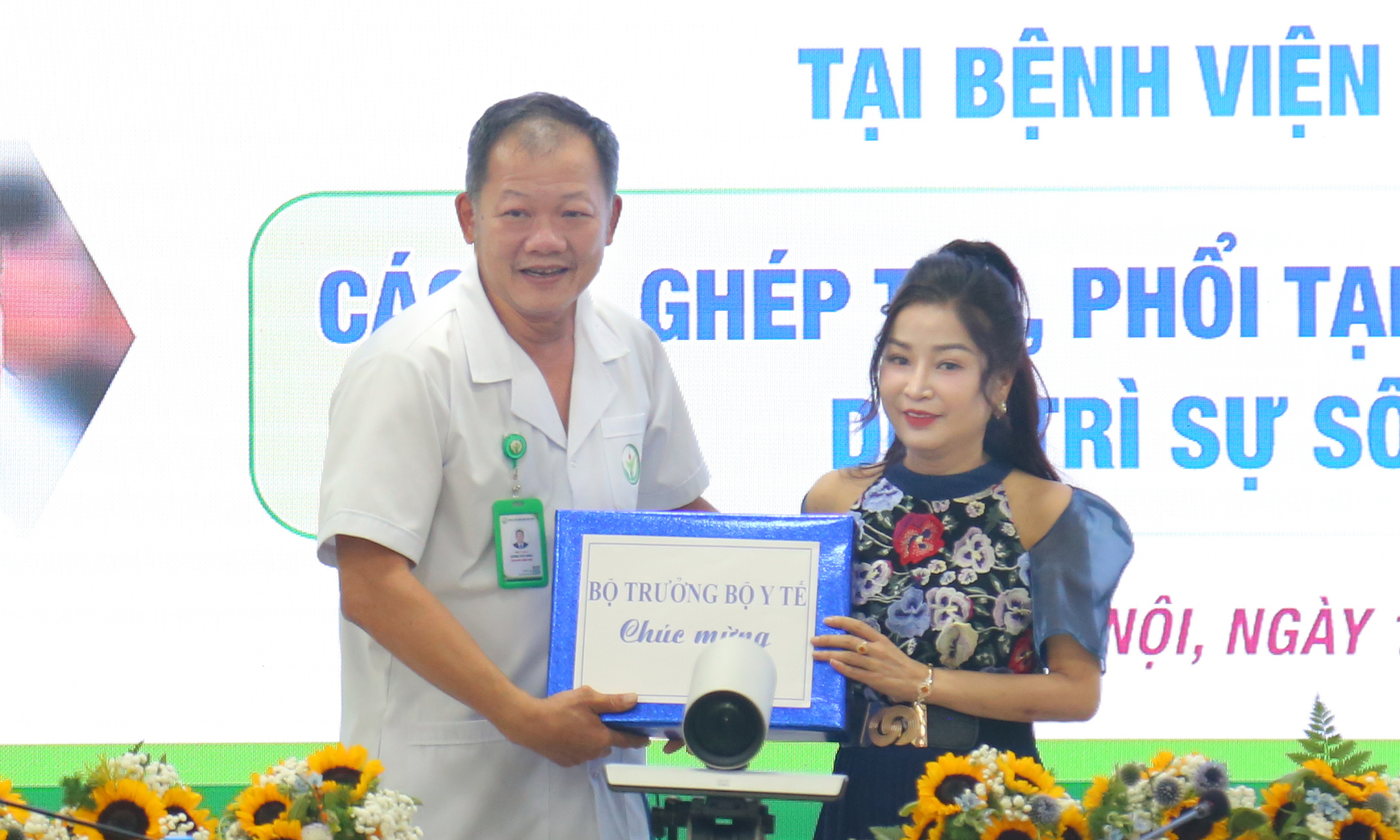 |
Doctor Hung congratulates the patient on her discharge. Photo: Thao My |
Doctor Hung congratulates the patient on her discharge. Photo: Thao My
Doctor Hung also noted that this is the most difficult type of organ transplant. The success of this procedure is not only a source of pride but also opens up new life opportunities for many patients with end-stage heart and lung disease.
Viet Duc Hospital marked another milestone with the number of heart transplants surpassing 100, making it a standard procedure at the hospital. The hospital has also expanded the donor pool by successfully transplanting failing hearts supported by ECMO, a major breakthrough that increases the chances of saving patients' lives.
Le Nga



